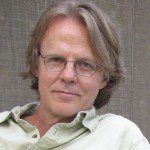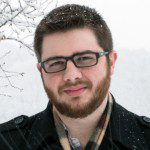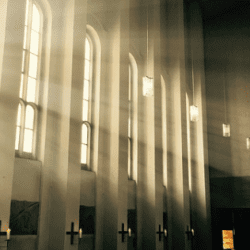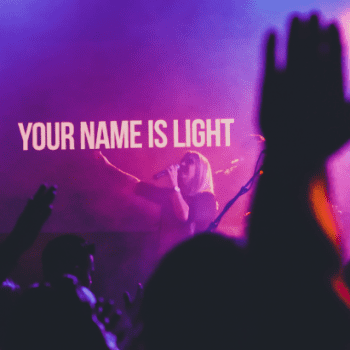In this series of articles we have developed a proper understanding of what crowdsourcing is and how diversity contributes to its ability to uncover innovative solutions, as well as considered the theological support for such an endeavor. Now it is time to test the theological waters of crowdsourcing to see if it supports the weight of these type of inquiries. Currently, Len Sweet and I have three such projects underway to do just that.
Our initial project (100 Words That Make Us Christian) was an attempt to engage a crowd of individuals to contribute words they thought provided insight into what it means to be a Christian. Very little additional guidance was given so as not to skew the contributions in a particular direction. During the 4 months of the contribution period, 229 individuals participated, 1025 votes were cast, and a total of 175 words were submitted.
After the crowd generated their list of words, our intention was to research the top 100 words and include our discoveries in a book to help clarify Christian identity, at least from the crowd’s perspective. We have all heard the phrase life is what happens when you are making other plans. Well, while the book we were planning was interesting, it existed in a tension between a fairly predictable word study/dictionary and a more in depth look into what this particular collection of words tells us. In other words, (pun intended) there seemed to be a greater story contained within the words. And so, we are currently writing a book based upon this research called The Book of Signs. Everyone asks what the #1 word was on the list…it was the word hear. Initially, I was confused by this result, but ultimately I came to view it as perfect…the joys of crowdsourcing.
Permission to Dream is our second Crowdsourcing Theology project and is inspired by the idea that if God is the creator and we are made in God’s image, Christians in and through the Church should be some of the most creative people on earth. Unfortunately, examples of this creativity are exceptions rather than the rule. Dreaming requires a sort of daring which many in the Church seem to have lost. The hope is that this project can serve as an invitation or perhaps permission for the Church to dream once again. The project currently has 40 dreams posted and is looking for more.
In Martin Luther’s moment of ultimate frustration, he went public with his ecclesial concerns, posting his theses on the door of the church in Wittenberg, the public square of the day. In anticipation of the 500th year anniversary of this event, we thought it might be interesting to launch a Reformation related crowdsourcing project; we call it Re-Formation.
This crowdsourcing investigation pays tribute to Luther’s endeavor by enabling his priesthood of all believers to collectively generate their own list of ecclesial concerns, posting them on the front door of today’s public square – the internet. While this project was only launched a few weeks ago, it is well on its way to assembling an insightful list of correctives for a Church that is battered upon the shores of postmodernity.
Jesus entrusted his message and truth into what he considered the capable hands of common men of the day. Paul showed how each of us plays an equal part in the living Body of Christ. And, Luther reminded us that there is no mediator between Jesus and ourselves. Crowdsourcing, in a sense, is true to this heritage in that it gives all the members of the Body of Christ equal voice to make known what they are hearing from Jesus via the Holy Spirit.
Should crowdsourcing be the solitary way in which we make decisions or attempt to uncover information concerning our churches, of course not. However, it can become a way in which we attempt to amplify and clarify the still soft voice of the Holy Spirit speaking to the Body of Christ today. If you are curious about the benefits crowdsourcing might bring to the Church, please join us as we learn together at crowdsourcingtheology.com.
After many years in the creative and business sides of television and music production on both the local and national level, Dr. Thomas Ingram now divides his time between research/writing and mentoring/coaching/encouraging others in their efforts to pursue God’s purpose for their lives. Ingram is the author of The New Normal: A Diagnosis the Church Can Live With. He holds a Bachelors of Science in Psychology, a Master of Business Administration in Leadership and a Doctor of Ministry in Semiotics and Future Studies. You can connect with Tom’s work at www.thomaseingram.com or email him at [email protected].













